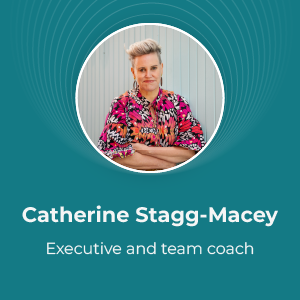
“Talent is equally distributed, but opportunity is not” – this quote is widely attributed to Leila Janah, and it’s something I see all-too-acutely through my work as an elected councillor in London.
Addressing this challenge means working to make the world a more inclusive place, thereby putting opportunities within reach of those who don’t currently have them.
We’ve talked previously about what Softwire is doing to make our recruitment and overall company culture more inclusive. Today, we thought it would be interesting to highlight some of the things we’re doing outside the business. Here, we’re seeking to use our knowledge and collective people power to have the biggest-possible impact when it comes to inclusion.
Engaging local young people in tech
Adam Grant’s Give and Take talks about how important it is to nurture people’s enthusiasm for something as early as possible. This notion supports one of our major drives, which is to engage local young people in coding and technology. We want to give those who are excited about tech the opportunities to discover more and get involved.
It’s why a number of our employees teach at school code clubs and run courses for Code First: Girls. It’s why we do regular school visits to talk about what STEM careers involve, and why we invite schools to come to our offices to get a feel for what careers in tech are like. We also work with the Social Mobility Foundation to offer work experience to those from low-income backgrounds, enabling them to try their hands at coding.
Leveraging our collective capabilities to support charities
Supporting charities and other causes is another way we try to give people greater opportunities. Like any business, by coordinating our efforts, the results we can achieve equal more than the sum of our individual parts.
For example, a group of five-or-so employees recently organised an event in aid of Ashanti Development, which aims to relieve poverty and promote health and development in and around the Ashanti region in Ghana. With the support of our wider workforce and local community, it raised £2,600 – likely a lot more than the charity would have received if each of these five organising individuals had simply made a donation.
Our ‘Charity Saturday’ initiative is another way to amplify the impact our employees can have. Here, people volunteer to come to work on a Saturday, and we donate the fee they earn from our customers to charity. Again, this generally results in significantly more money going to the cause than would be the case if individuals made their own donations.
Elsewhere, as well as our financial support for Ashanti Development, we’ve donated IT equipment we no longer need. This gives people in these communities easier access to technology and all the opportunities that come with it.
And, of course, we leverage our software development capabilities to help out causes seeking to offer opportunities to those who may not otherwise have had them. For example, we did some pro bono development for Code First: Girls, which, among other things, provides free coding courses for women. We also typically use our summer internship programme to take on social impact work free of charge.
Choosing projects with impact
Working for free isn’t the only way we can harness our technical abilities to make a difference. There are lots of public, private and third-sector digital projects that aim to have some form of social or environmental impact, and thereby make the world a more inclusive place.
For example, our work with the Fleming Fund is contributing to the fight against antibiotic-resistant diseases. This helps make medication more effective for everyone, thereby reducing illness and mortality, and consequently enabling people around the world to live healthier and more fulfilled lives.
We’ve done a lot of work with Anthony Nolan, including helping it improve the tools it uses to match potential stem cell and bone marrow donors to patients in need of life-saving transplants.
The Simple Energy Advice service, which we built for the UK government, helps people identify ways to save money on their bills, while simultaneously protecting the environment for everyone by reducing energy usage.
And the ground-breaking artificial intelligence project we were part of with DeepMind and Moorfields Eye Hospital, could ultimately help doctors prioritise which patients need rapid treatment for sight-threatening eye diseases. For those individuals, this could save their sight, thereby giving them opportunities they may not otherwise have had.
We’re stepping up our pursuit of this type of work, through the founding of our social impact division, Softwire Earth. We’ll be announcing more about this exciting development in due course.
Making a lasting impact
These examples illustrate how a business, by playing to its strengths, can make an impact far beyond its own walls. We know we’re not going to change society or the world overnight, but we do believe we can make a significant and lasting difference when it comes to ensuring more people have the opportunity to unleash the full potential of their talents.


